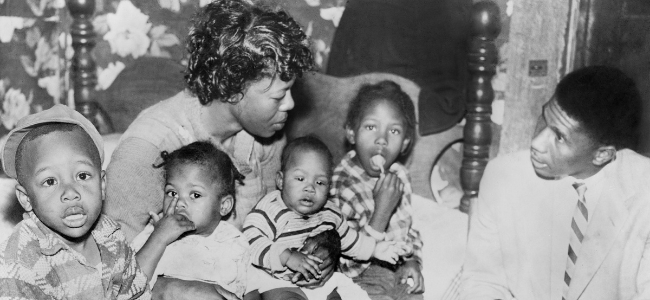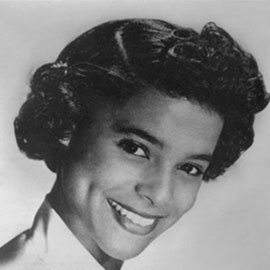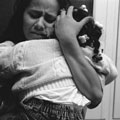Joe Richman: From PRX’s Radiotopia, this Radio Diaries. I’m Joe Richman. This week, the Senate unanimously passed legislation that would make lynching a federal hate crime. It was a historic moment. Congress has tried and failed to pass anti-lynching legislation more than 200 times over the course of more than a century.
According to the NAACP, more than 4,700 people were lynched in the United States between 1882 and 1968. The perpetrators rarely faced consequences. The new Emmett Till Anti-lynching act, as it’s called his name for the 14-year-old boy who’s murder 67 years ago shocked the nation.
In 1955, Emmett Till had traveled from Chicago to the Mississippi Delta to visit family. He was kidnapped, beaten, and killed after allegedly flirting with a white woman. His body was later found in the Tallahatchie River.
A photograph of Till’s just figured face was published and his death became a media sensation. Today, his murder is considered the spark that ignited the civil rights movement. But for every Emmett Till there are, of course, many others whose names have been forgotten.
One of them was a Black gas station attendant who lived just a few miles from work Till was killed. Today, the little-known story of Clinton Melton.
Deloris Melton: My name is Doloris Melton Gresham, I’m the daughter of Clinton Melton and Beulah Melton.
Dorsey White: My name is Dorsey White Jr. I’m 86-years-old. I’m Beaulah’s nephew.
Deloris Melton: Growing up, the house that we lived in it was like on a little bayou-like. It was always a happy home and my mom she’s a beautiful woman. Her nickname was pretty mama. This is what everybody called her.
Dorsey White: Clinton Melton was what you called a good man. He worked hard, took care of his family, he was, you know, well respected by all other Black people that know him, and the white people that came in contact with him, they liked him also.
Deloris Melton: My dad worked at a service station. He pumped gas, fixed flats. We used to stand and wait for him to come home. And, you know, even though we couldn’t tell time, we knew what time he’s supposed to be coming home.
Dorsey White: Glendora, Mississippi was a small plantation town just a stop on Highway 49. You know, at that time you didn’t have any protection as far as the law was concerned. It could just happen any time. You could be pulled over by highway patrol if you’re driving a car and be abused. And a white person could, you know, start trouble and no one would interfere.
I guess you felt like a rabbit in the forest really what it felt like [laughs] because you had nobody to run to.
Archival (Voice of a reporter): This is Doug F. Minor, Times-Picayune, Jackson, Mississippi. The kidnapping of Emmett Till the 14-year-old who disappeared on August 28th…
Dorsey White: I was 20-years-old when Emmett Till was killed. You know, it was the news of the day.
Deloris Melton: The kids at school would talk about Emmett Till and how they had thrown his body in the river.
I remember being afraid to go to sleep at night because some white people might come in and do the same thing to my brothers.
Archival: The brutal lynching of Emmett Till demands prosecution of all persons involved in this hideous crime.
Keith Beauchamp: Emmett Till wasn’t the only racially motivated murder that took place in the summer of 1955 in Mississippi. But Emmett was the perfect poster child. My name is Keith Beauchamp and I made the documentary The Untold Story of Emmett Louis Till.
After the Till murder trial, you have two men who were involved with the murder of Emmett Till, Roy Bryant, and JW Milam. And they’re acquitted of all the charges by an all-white, all-male jury. And then they get to stand in front of the cameras and smoke cigars and so on; they would get off scot-free.
Dave Tell: My name is Dave Tell and I’m the author of Remembering Emmett Till. The acquittal fueled this environment, this sense that violence against Black Americans would never be punished.
Keith Beauchamp: Something was bound to happen again. And three months later, just a few miles away. The 34-year-old gin operator drove to a gas station in Glendora, Mississippi.
Dave Tell: On that day, Elmer Kimball was driving the car of his good friend, JW Milam, one of the confessed murderers of Emmett Till.
Dorsey White: They were friends, you know. They would hang out together, and Kimbal and Milam I guess had been drinking beer.
So it was late in the afternoon there, uh, closing time when Kimbal parked the car near the gasoline pump. Clinton approached them and they told him to put the gasoline in.
Deloris Melton: So, my dad filled the car up with gas. And then when he finished, he told him that, you know, okay, you’re finished.
And he said, Nah, I didn’t tell you filled it up. I want $2 worth.
And my dad told him, he said, I distinctly heard you say you wanted a fill-up.
Dorsey White: That’s when the dispute came. They said he didn’t put the right amount in there. So he told them again, I put in there what you told me.
Deloris Melton: And he told my father, well, don’t be here when I get back. And so when he told him that, the service station owner told my father Clinton just go home you know.
Dorsey White: Clinton started putting some fuel in his car so he can go home and before he finished they returned.
Deloris Melton: When he came back with the gun, he shot it in the car. From what I was told, he had a bullet hole in his hand and a bullet through the head.
I remember it was a rainy night and we were actually in bed. My mother, she just came in, she was crying and just came in and hugged each one of us, you know, and told us that “your dad won’t be coming back home.”
I remember asking her why, and she said he got shot. Your daddy is dead.
Archival (Voice of Beulah Melton): I’m Beulah Melton, the wife of Clinton Melton. I have suffered a great loss, the loss of my husband from myself and my four kids.
Deloris Melton: The news cameras came out and they had an interview with my mom…
Archival (Voice of Beulah Melton): We had great plans for Christmas. We had planned to get a bicycle for Vivian and a dining room set for Deloris, a basketball for Clinton Jr.
Deloris Melton: That’s her voice. I like to hear her voice.
Archival (Voice of Beulah Melton): Now, how will I make this test by myself without some help from somebody.
Keith Beauchamp: Medgar Evers, who was a field secretary of the NAACP at that time, wanted to bring national awareness to the Clinton Melton case, but Beulah felt that it could be dangerous and they could receive backlash.
Dorsey White: She had lost a husband and she had these four children. You know, she didn’t have no one to really depend on. So, I’m sure that, you know, she was heartburn. And I guess she was confused too.
Dave Tell: So, the trial was set for March 1956, but just before that, days before the trial happened, Beulah Melton was driving and her car ended up in the black Bayou river.
Dorsey White: She had her children in the car with her when she made a wrong turn and went on the water.
Deloris Melton: My brother was three-years-old and that was five. We are in the car. The car is upside down. You know, you can feel the water just coming in. And my brother told me, he said, water is getting in my face! And so I pulled him close up to me and I was feeling around because I was actually trying to open the door. But you know, if you’re upside down everything is not in place so I’m trying to feel the knob and I felt my mom, but she wouldn’t answer me.
We didn’t know how to swim. I was scared that we were going to drown.
Finally, I heard my uncle and this other man come along and he got us out and I remember them taking my mom out and she wasn’t moving.
Dave Tell: HEADLINE: Widow Drowns as Trial Opens. A widow who was set to attend the trial of a white man accused of gunning down her husband drowned under mysterious circumstances last week. Two of Ms. Melton’s children, Deloris and Clinton Jr. were rescued without serious injury.
Deloris Melton: I was told later that we had been forced off the road. But they never did say who or what, but they were thinking that it was because my mom was going to attend the trial and somebody didn’t want her there.
Was it an accident, or were we forced off of the road or what? I don’t think nobody really investigated to see what actually happened to her. I would like to know.
Dave Tell: When the Clinton Melton trial began, it opened in the same courthouse where Till’s murders were tried just five or six months before. The same sheriff was on hand, the same lawyers were defending the defendants.
Keith Beauchamp: But maybe one of the most interesting connections was something that was not known at the time, that Elmer Kimball was an accomplice to the murder of Emmett Till. We now know Kimball was involved with both murders.
Dave Tell: Kimball was also a manager at the Glendora cotton gin where the Till murderers stole the fan that held Till’s body in the river. But in both cases, the juries ignored evidence and there was a unanimous verdict, not guilty.
Dorsey White: Uh, well, a little more or less that I understand, it wasn’t a real serious trial, they just, they just went through the motion and did what White people would do during that period of time. A miscarriage of justice.
Deloris Melton: How could they sit there and know that this man had killed another human being and they still find him not guilty.
[Very deep breath] I really don’t like to say this because I got to remove this from my heart, but I had in my mind at that time that every white person that’s home, that I would just like to just shoot them, let them see what it felt like.
After my mom and dad died, my aunt she adopted all four of us and she had three children of her own. My relatives on my dad’s side, they wanted to split us up and she said, no, because we didn’t want to be separated.
We used to get together and we often talked about what it would be like, you know, if our mom and dad was living. At times, I could actually picture the house where we lived at and everything that was in it.
The bed, I remember the big heater that sat in the middle of the floor, in the kitchen, the kitchen table. I remember seeing some red curtains at one of the windows. I remember that. At that age, you don’t think you need these memories.
Joe Richman: Deloris Melton Gresham, the daughter of Clinton and Beulah Melton. Today, Clinton Melton’s name is engraved at The National Memorial for Peace and Justice in Montgomery, Alabama honoring victims of lynching in the United States.
Thanks to Dolores Melton Gresham, Dorsey White, journalist Aaron Hayes, filmmakers, Keith Beauchamp, and historians Dave Tell Carlos Hill and Alex Lichtenstein. The Radio Diaries podcast is produced by Alissa Escarce, Nellie Gilles, Micah Hazel, and me. Our editors are Ben Shapiro and Deborah George. Our marketing and operations manager is Stephanie Rodriguez. Radio Diaries is part of Radiotopia’s listener-supported network from PRX. I’m Joe Richman. Thanks for listening.








